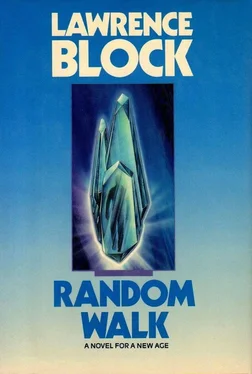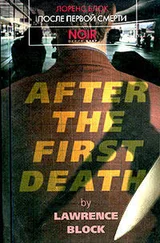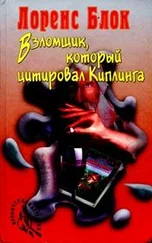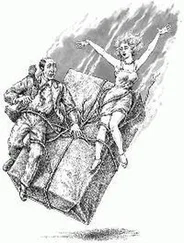As always happened when any of them breathed in this fashion, a strong current of energy was generated in their bodies. But this time, breathing together as one, there was a powerful group energy in evidence as well. Their bodies remained a few feet apart, but whatever had previously separated their spirits dissolved in the white light of their shared breath.
They breathed together for between thirty and forty minutes, by which time everyone had gone unconscious. By the time another hour had passed, they were all awake again, and an easy calm lay upon the group like morning mist in a valley.
They spent three more nights on Indian land, and on each of those nights Sara led them through a similar session of breathing in unison. By the time they left Indian territory and crossed the long bridge over the Missouri River, they knew each other as intimately as if they had shared a womb.
And they all knew what they were there for. One way or another, each of them had been given a taste of Sara’s vision.
East of the Missouri, Route 212 continued across the state, but Guthrie took them south on 83, heading toward Pierre. A number of Indians had walked off the reservation with them, and more people joined as they paraded south through Agar and Onida. They left the highway before it reached Pierre, turning east on 14. They passed through Blunt and Harrold, Holabird and Highmore and Ree Heights, Miller and St. Lawrence.
There was more wheat being grown on this side of the Missouri, and less open range for cattle, but the terrain was otherwise much the same, perfectly flat, and sectioned off by roads that were perfectly straight. A wind from the west had been at their backs all the while they crossed the Indian land, and it was blowing with more force now, never letting up, never changing direction. There was nothing to stop it in this flat treeless land, nothing to slow it down.
Every ten miles or so a road intersected theirs, and at virtually all of those intersections there was a village of a hundred or four hundred or eight hundred people. At each intersection, in each village, people were waiting to join them. Most of them lived within a few miles of the town, but some had traveled long distances, although none yet had come from as far as Minot. There were a few from Nebraska, however, and several from farms close to the North Dakota border.
Some arrived at the roadside just as the procession was reaching it. Others stood for days, scanning the horizon like nineteenth-century Millerites waiting for the world to end. Something kept them from wandering off, and finally the group came into view, and when it reached them they gave themselves up to its embrace.
People reacted to them now in one of three ways. Some, of course, dropped what they were doing and joined in. A farm wife weeding the kitchen garden called her husband from the fields and her children from their play, and before the procession had passed it would be larger by one family. Others waved or spoke to them and wished them well, but either never considered joining in or dismissed the notion easily.
And, finally, there were those people who did not see them at all. Sheriffs and state troopers were generally in this category, but they were not alone; any number of motorists passed them on the highway without taking their eyes for a moment from the road. They were, to be sure, an increasingly visible phenomenon, two hundred of them or close to it, strung out along the highway and edging onto the shoulder when a car neared them. It took a sort of willful blindness to overlook them, but an increasing number of people managed to do just that.
It was, Guthrie decided, much of a piece with the protective shield they seemed to have against harsh weather and extremes of temperature. The same force field screened them from eyes that would not like what they saw.
Kate, the Boston Irish woman who had reached them by way of the Hen House commune in Idaho, had an alternate explanation. They were, she pointed out, an extraordinary lot, workers of miracles, altogether miraculous in their own right. As such they existed somewhere outside the boundaries of the belief systems of some people, and so they became like leprechauns in Ireland, quite invisible to those who did not believe in them.
It was hard to think of people like Dingo and Jody and Les Burdine as leprechauns, but Guthrie could see her point. At the beginning, when he had set out across Oregon on his own, he had never run into anyone who had failed to notice him. Every person he talked to answered him, every driver he waved at raised a hand or an index finger in response. But then he had not yet constituted any great threat to anyone’s belief system. McLemore, the motel owner, had been outraged at the idea of his sleeping out in his clothes, and had maintained the integrity of his understanding of how the world worked by dismissing Guthrie as a liar. Transport McLemore across half a continent, confront him with people who were growing new teeth and walking away from their wheelchairs, and their mere existence would be a serious threat to his sanity. If he couldn’t stretch his mind, he could at least protect himself by closing his eyes.
On a Tuesday morning, midway between the little towns of Cavour and Iroquois, Ellie woke up, fed and changed Richard, and went down to the stream to fill her canteen. She got a sudden painful tingling sensation in her left thumb, and responded to it by putting it in her mouth. Georgia Burdine, who was washing her hands and face in the stream, accused her of having learned the trick from Richard.
“Richard doesn’t suck his thumb,” Ellie said. Then, without thinking, she added, “By the pricking of my thumb, something wicked this way comes.”
“Gosh, I hope not,” Georgia said. “Is that from something?”
“ Macbeth. The witches say it. Well, one of the witches says it. Ouch!”
“It hurts, huh? Let me see it, Ellie. I don’t see anything wrong with it. It’s not swollen or infected.”
“I’m sure it’s nothing.”
“There were bees around yesterday. Did you get stung?”
“I don’t think so. It’s the sort of thing you tend to notice when it happens, isn’t it?”
“Maybe you stuck yourself on a thorn then. Well, what the hell, let’s deal with it.” She closed her eyes, rubbed her hands together briskly, held them down at her sides, and breathed deeply three times, willing energy into her hands with each exhalation. When her own hands were tingling she held them on either side of Ellie’s thumb. She kept up the treatment for about a minute, then withdrew her hands.
“How’s that? Better?”
“All better. Thanks.”
“’Snothing. Hey, say that again, will you? From Macbeth ?’”
“‘By the pricking of my thumb, something wicked this way comes.’ Except I think it’s thumbs, plural, which would rhyme better, wouldn’t it? ‘By the pricking of my thumbs, something wicked this way comes.’ Yeah, I’m sure that’s it. I got it wrong because I only had a pricking in one of my thumbs.”
“Well, that’s a relief.”
“Why?”
“It means we don’t have to worry,” Georgia said. “About something wicked this way coming.”
They were just a mile or two past the town of Manchester that afternoon when a car passed. Many of them waved but the driver didn’t wave back. He had looked at them, though. Usually the drivers who looked right at them responded in some way or other. But not always.
A few minutes later the same car passed them going the other way. At least it looked like the same car. And a few minutes after that it appeared a third time, and this time the driver pulled off onto the shoulder and asked directions to the Laura Ingalls Wilder memorial.
“That’s in De Smet,” a young woman named Kimberley said. She was a native South Dakotan and had just joined them three days ago in Wessington. “We haven’t come to it yet. You must have passed it, it’s eight or ten miles back the way you came.”
Читать дальше








